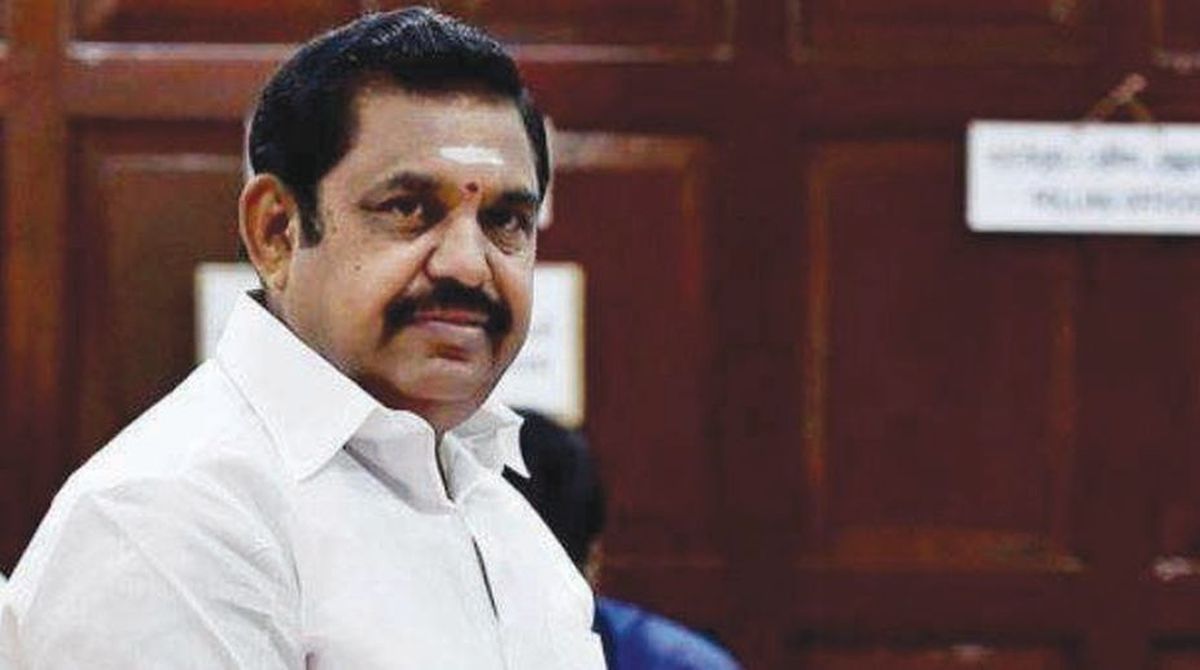Congress committing dacoity on rights of OBCs, SCs, STs: PM
“Wherever it (Congress) can do it, it will try to loot the claims of the SCs, STs and OBCs and give them to others,” said Modi.

Edappadi K Palaniswami (Photo: IANS)
The Tamil Nadu chief minister, Edappadi Palaniswami, has a lot to answer for not merely in terms of the in-house turmoil within the AIADMK, but in the sphere of the arts and culture no less. In the season of international film festivals ~ Mumbai in October followed by Kolkata and Goa in November ~ cinema deserved better in southern India not the least because of its crop of talented film-makers, not to forget the remarkable degree of appreciation. Not so in Chennai, however.
The state capital bore witness to unbridled vandalism last Friday, unleashed by the stormtroopers of the ruling party, a violation of the rule of law that was tacitly condoned by the state government. Trashed in the process were the lofty concepts of free speech and expression in the arts, recalling the predicament of Parzania, which had documented the Godhra pogrom of 2002 and was shot during the heyday of Narendra Modi as Chief Minister.
From Gujarat to Tamil Nadu, the party and government can be on the same wavelength when driven by the “compulsion” to suppress dissent in a democracy. Whether a state is under the Bharatiya Janata Party or the All-India Anna DMK, the line that separates statecraft from the arts gets increasingly blurred. It bears recall that the premiere of Aamir Khan’s Faana was scuttled because of his participation in the Narmada Bachao Andolan march.
Advertisement
The distressing reality must be that the arts have suffered at the altar of the ruling party’s ideology, preferences and prejudices. So indeed it was in Chennai on Friday. The politician might score a spurious victory, but the potent medium of the cinema is the loser. In the film, Sarkar, directed by AS Murugadoss and one that convulsed Chennai on the day of its release, no fewer than four sequences were bowdlerised under considerable pressure that was mounted by the AIADMK and its government.
The party, with sycophancy as its hallmark, is aggrieved over the portrayal of reality on celluloid, chiefly the distribution of freebies during the Jayalalitha regime ~ arguably the major determinant of the string of electoral victories. Nay more, the party has even alleged that Sarkar has projected her in “a bad light”. Sad to reflect, the spurious censors of the AIADMK brigade have had their way.
The attitude of the establishment renders the role of the Central Board of Film Certification almost irrelevant, even redundant. Given its thematic content, Sarkar cannot possibly be a money-spinner at the box-office, starring Page 3 characters as the credits flit across the screen.
At stake is the freedom of creative expression and aesthetics, that must be kept out of the tangled skein of politics, faith, and state intervention. Cinema, much like social science disciplines, is open to subjective reflection. This is at the core of film appreciation that cadres, cutting across party lines, must accept. Cinema is never crafted for the cans.
Advertisement